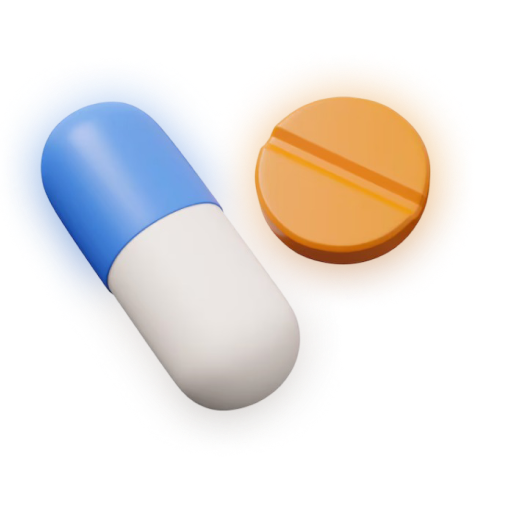Naproxen 250 mg Tbl 30 Stk
Anti-inflammatory pain reliever


Description
Generic Name: Naproxen
Brand Name: Aleve, Naprosyn, Proxen, Apranax
Drug Class: NSAID (Nonsteroidal Anti-inflammatory Drug)
This is a prescription medicine, which requires a valid prescription!
Indications
- Musculoskeletal pain (e.g. back pain, sprains, strains)
- Inflammatory conditions: Rheumatoid arthritis, osteoarthritis, ankylosing spondylitis
- Dysmenorrhea (menstrual pain)
- Acute gout attacks
- Headache or migraine
- Mild to moderate general pain

Naproxen works by:
- Inhibiting cyclooxygenase (COX-1 and COX-2) enzymes
- Reducing prostaglandin synthesis → alleviates inflammation, pain, and fever
- Dosage and Administration
- Form: Oral tablet
- Strength: 250 mg
- Adults:
- Initial dose: 250–500 mg twice daily
- Maintenance: 250 mg every 6–8 hours as needed
- Max daily dose: 1000–1250 mg (short-term); lower for chronic use
- Administration: Take with food or milk to reduce stomach irritation
Common:
- Nausea, indigestion
- Heartburn, abdominal pain
- Headache, dizziness
Serious (rare):
- Gastrointestinal ulcers or bleeding
- Cardiovascular events (heart attack, stroke – with long-term use)
- Kidney dysfunction
- Allergic reactions (rash, anaphylaxis, asthma exacerbation)
- Active gastric or intestinal ulcer
- GI bleeding or perforation history
- Severe renal or hepatic impairment
- NSAID or aspirin allergy (especially with bronchospasm)
- Pregnancy (3rd trimester)
- History of cardiovascular disease (use with caution)
Information
Warnings and Precautions
- GI risk: Use lowest effective dose, consider gastroprotection (e.g. PPI) in high-risk patients
- Cardiovascular risk: Avoid prolonged high-dose use in patients with heart disease
- Kidney function: Monitor in elderly or volume-depleted individuals
- Pregnancy: Avoid in late pregnancy; may affect fetal circulation
- Breastfeeding: Small amounts pass into breast milk; use with caution
- Avoid combining with other NSAIDs or aspirin without medical advice
Drug Interactions
- Anticoagulants (e.g. warfarin): ↑ bleeding risk
- Other NSAIDs or corticosteroids: ↑ GI toxicity
- ACE inhibitors/diuretics: ↓ efficacy, ↑ kidney risk
- Lithium: ↑ lithium levels
- Methotrexate: ↑ toxicity risk
Request Now
Direct Enquiries
For any inquiries, please feel free to contact us directly via email at the link below.
pharmacy@doctorworld.eu
PLEASE AVOID SELF-DIAGNOSIS AND SELF-MEDICATION!
Our website content is posted for informational purposes only. It is not intended to be used for primary diagnoses-making and should not replace a consultation with a professional health care provider. If you have any health issues or complaints, please consult your primary physician.
Health care data provided for informational purposes is not an alternative to an in-person physician consultation.